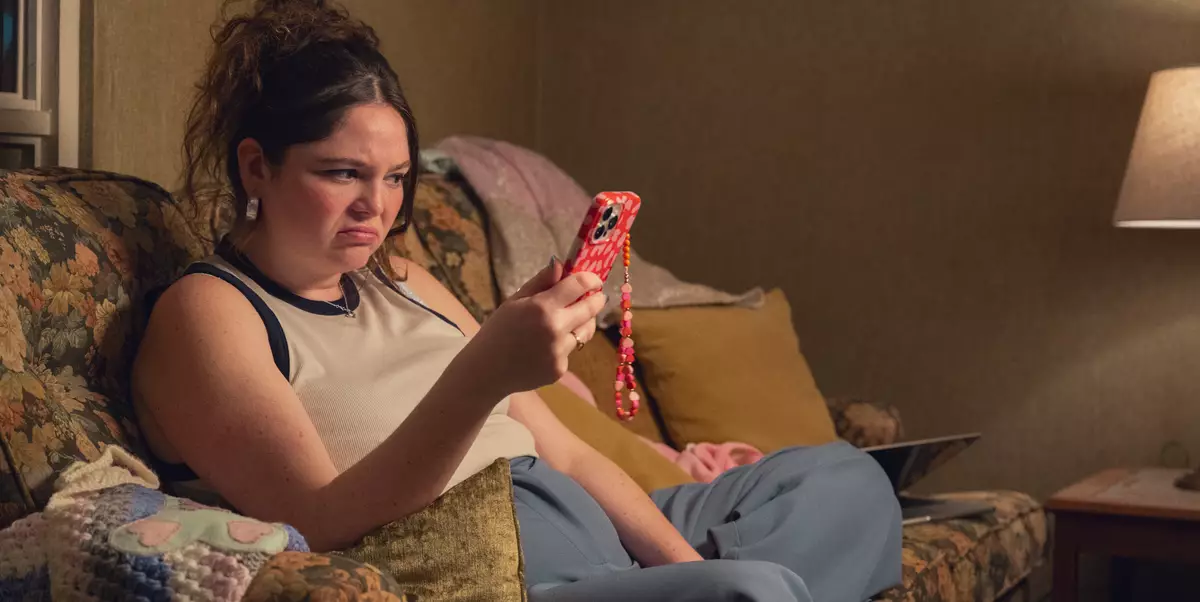The initial conclusion of “Too Much” left viewers with a shocking yet intriguing cliffhanger—a courthouse wedding between Jess and Felix. This moment is more than just a plot twist; it signals a deliberate departure from traditional romantic comedy tropes, emphasizing that love and marriage are complex, evolving journeys rather than simple fairy-tale finales. Creator Lena Dunham’s comments about shifting focus from “meet cute” to “marriage story” suggest a bold narrative choice to dive into the messy realities of long-term relationships. This perspective is refreshing in a genre often dominated by idealized portrayals of romance, and it invites audiences to question whether love’s true test is in its endurance and negotiation, not just initial spark.
What sets “Too Much” apart is its willingness to explore the darker, more nuanced aspects of married life—disagreements, compromises, and personal growth—all of which are rarely given depth in standard romantic comedies. If the show proceeds beyond season one, it has the potential to revolutionize how television portrays relationships, moving from simple narratives to rich, layered explorations of human connection. This approach underscores that marriage is not merely an endpoint but a complex, ongoing negotiation that can ultimately lead to greater understanding and self-awareness. Such a perspective is both empowering and challenging, encouraging viewers to reexamine their own assumptions about romance.
The Fragility of Relationships in a Serialized Format
The tantalizing possibility of a second season hinges critically on the show’s ability to adapt its focus from a “meet cute” story to a realistic depiction of marriage. The first season’s ending was intentionally provocative, leaving fans questioning whether Jess and Felix’s union would withstand the realities of sustained partnership. This ambiguity is what makes “Too Much” compelling—it refuses to promise viewers a happily-ever-after in a tidy package, instead embracing the uncertainty and emotional tumult that define genuine relationships.
Furthermore, Dunham’s acknowledgment that marriage is a “incredibly complicated negotiation” reveals her understanding of modern relationships and her commitment to portraying their intricacies authentically. In doing so, the series can challenge societal narratives that romanticize marriage as a culmination rather than a continuous process of negotiation and self-discovery. If the show chooses to follow its creators’ intentions, it could reshape expectations around romantic storytelling, emphasizing resilience and personal evolution as core themes.
Nevertheless, the show’s continuation depends heavily on Netflix’s decision-making process. While the cast and crew are eager to extend Jess and Felix’s journey, industry realities—such as production costs, scheduling conflicts, and platform priorities—could impede this progression. Yet, the enthusiasm expressed by key players suggests a shared belief that “Too Much” has the potential to make a meaningful impact, provided it receives the necessary support.
Potential for Rich Character Development and Audience Engagement
One of the most exciting prospects for season two is the opportunity to delve deeper into the characters’ baggage and flaws. Jess and Felix are passionate but imperfect individuals whose past experiences shape their present struggles. By exploring these history-laden dynamics within the context of marriage, the series can offer a nuanced portrayal of how love is built through confrontation, compromise, and understanding.
Moreover, the show’s potential to incorporate a diverse cast of characters—ranging from Wendy Jones (Emily Ratajkowski) to Naomi Watts’s Ann Ratigan—opens avenues for richer narrative threads and social commentary. These characters could serve as mirrors, foils, or catalysts for Jess and Felix’s growth, further elevating the series from a simple romantic comedy to a sophisticated exploration of relationships within a broader social fabric.
The enthusiasm from the cast indicates a shared belief that the story of Jess and Felix is far from reaching its climax. Their chemistry and storytelling potential promise engaging, heartfelt, and occasionally awkward moments that resonate with viewers navigating their own complex relationships. If executed well, “Too Much” can redefine what audiences expect from romantic comedies—no longer superficial escapism, but authentic stories about real love’s tumult and resilience.
The Challenge Ahead: Balancing Authenticity and Audience Expectations
While the possibilities are enticing, “Too Much” faces the challenge of maintaining authenticity without alienating viewers who seek escapism. The series must strike a delicate balance—showcasing the messiness of marriage while still delivering the humor and charm inherent to the genre. If the show leans too heavily into melodrama, it risks losing its core appeal; too much levity, and it may undercut the depth it aims to portray.
Moreover, Lena Dunham’s comments reveal a thoughtful awareness of industry constraints, which might limit her creative freedom. The possibility that negotiations with Netflix could influence the narrative direction is a reminder of the inherent tension between artistic vision and commercial viability. Yet, this tension can also serve as a catalyst—forcing the creators to craft stories that are both emotionally truthful and broadly accessible.
Ultimately, the potential second season of “Too Much” is an intriguing proposition—it promises to challenge conventions and explore the complexities of love, commitment, and personal growth. Its success hinges on a commitment to authenticity, nuanced storytelling, and a willingness to embrace the unromantic realities of marriage. If Netflix recognizes the series’ potential, “Too Much” could not only entertain but also inspire viewers to reconsider what it truly means to love and be loved in an imperfect world.


Leave a Reply